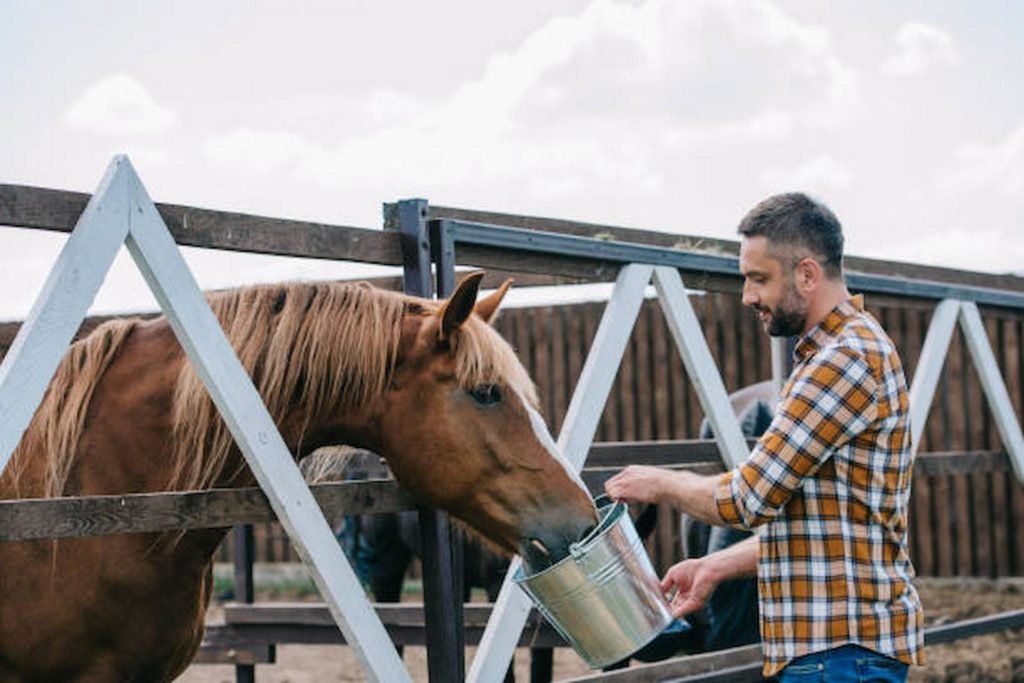It’s often impossible to give a straight answer on how much food horses eat as there are so many factors that influence a horse’s diet. The breed and age of the horse are two influential factors among others. Plus, the type of horse food being offered will determine the amount your horse eats too.
The Importance of Hay
Hay is one of the most important parts of your horse’s diet to ensure they are happy and healthy. It can be tempting for horse owners to substitute some hay for more grain in efforts to save money. However, it is vital that your horse gets enough long-stem forage to maximize their overall health and wellbeing and so this tends to be the majority of most horse’s rations
The Amount of Food Horses Eat
In general, the amount of food a horse eats is usually described as a proportion of their bodyweight. This allows for comparisons to be made between different sized horses and ponies. Horses need to consume about 2% of their body weight in forage per day. For instance, that is about 10kgs for a 500kg horse.
The range given for the amount horses consume when grazing is between 1.6 and 3.6% dry matter which is a range of between 8 and 18kgs dry matter or 40 to 90kgs of pasture as fed. A lactating mare is typically at the upper end of that range and is one of the highest consumers of food for obvious reasons.
Ponies have in fact been reported to consume up to 5% of their body weight and are often known to consume large amounts more quickly when rationed. For example, you could limit their grazing time, but that may not be that effective as they simply compensate by eating more quickly!
The Right Form of Food is Just as Important as the Amount
When sorting out food amounts for your horses and ponies, the typical intake is between 2 – 2.5% their body weight. As the horse is an herbivore, not only is the right amount of food important for maintaining their health and well-being but the form it comes in matters too.
The natural evolution of horses means their innate instincts are to eat 16-18 hours each day in the wild. Therefore, in domesticated settings it is important to mimic this. Some owners may use energy dense feeds as meals. However, this habit of eating has significant implications on the health of the horse’s digestive system and can disrupt the horse’s behaviour too. Considering this, you can opt for conserved forages, usually in the form of hay or haylage, when pasture isn’t available as they still take a relatively long time to eat and are high in fibre.
To achieve the recommended daily amount of dry forage between 2-2.5%, a horse will consume different levels of forage depending on how much moisture they contain. The wetter forages such as haylage need to be fed and consumed in larger amounts to meet the same level of nutrients provided by dry forage.

